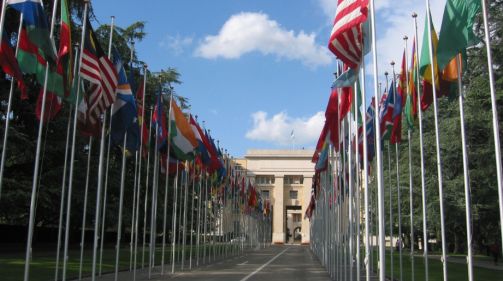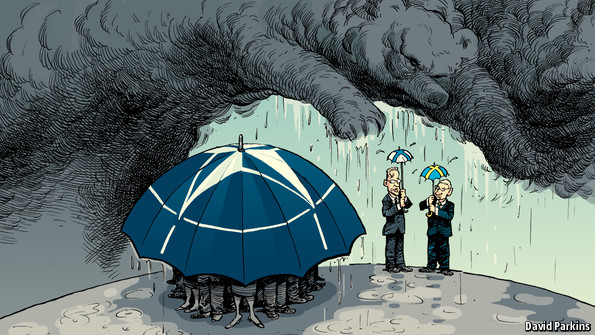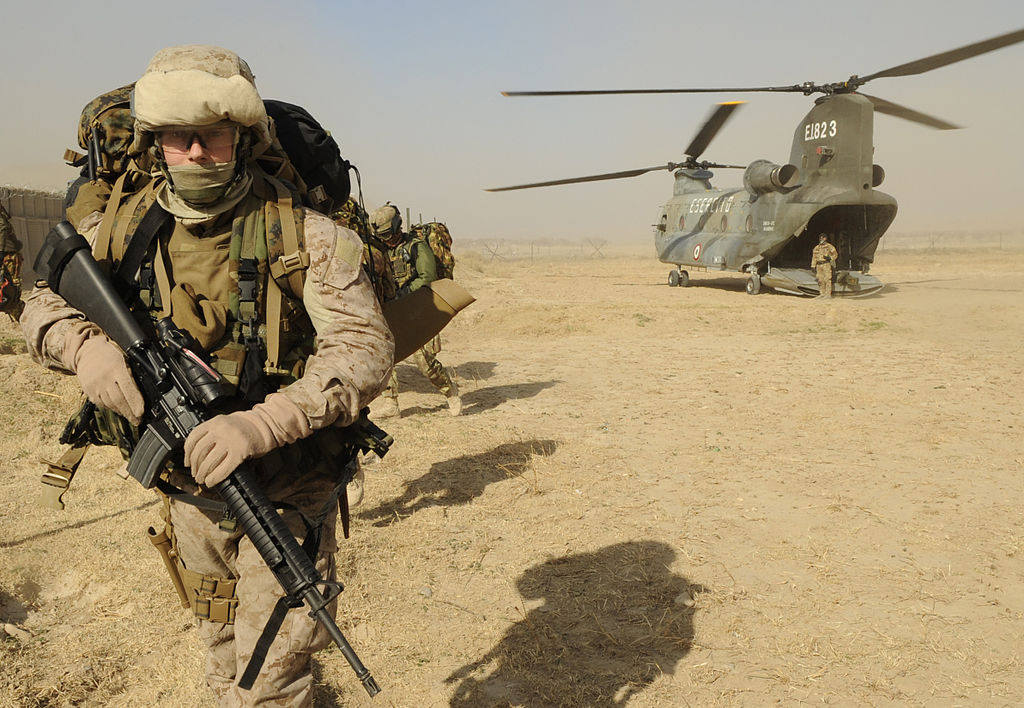Good International Citizenship
On March 8, 2014, the world was shocked as Malaysia Airlines flight 370 vanished from the sky and radar screens.. 55 days and $53 million later, the disappearance of MH370 has captivated the world’s attention, and baffled experts in what has turned into one of the most complex and logistically challenging international search efforts in history. Officially, 26 nations have been involved in the search efforts for the missing jetliner, underscoring the incredible international coordination efforts in the spirit of being “good Samaritan” states.
What middle powers might lack in military and economic clout, they make up for in their ability to effect bottom-up change and sustainable development.

On the first presidential trip to Malaysia since 1966, US President Barack Obama vowed to form closer ties with Malaysia, and encourage greater collaboration between the two countries, demonstrating that positive opportunities exist even in the darkest of situations. Diplomatic relations and development can be improved by the act of two nations coming together to work towards a common goal. Indeed, some states have proven time and time again that ‘good international citizenship’ need not trump national interest, but rather, it can give rise to new avenues for diplomatic engagement and growth.
Championing Human Rights
Gareth Evans is a former Australian foreign minister and policy maker who has been widely acknowledged for championing the humanitarian principles central to the Responsibility to Protect (R2P) doctrine. R2P came to be a central theme of the International Commission on Intervention in State Sovereignty (ICISS), and brought to fruition a moral imperative for protecting human rights, setting the stage for the obligation of the international community to uphold values of international peace and security.R2P emerged out of the failed practice of humanitarian intervention during the 1990s, which saw crimes against humanity committed on a massive scale in Bosnia, Rwanda and Kosovo. Middle powers, such as Australia and Canada, who played active roles in peacekeeping operations throughout the ‘golden age of humanitarian intervention’, emerged from these conflicts with a disappointment for failed multilateralism. In response, R2P proposed a paradigm shift in humanitarian discourse, recognizing the important difference between ‘intervention’ and ‘protection’.
Middle Power Diplomacy
Australia is no stranger to intervening in disaster situations in the Asia-Pacific region, and has played a pivotal role in disaster management and humanitarian relief in tragedies ranging from the 1999 peacekeeping mission in East Timor to the 2011 earthquake and tsunami in Japan. More recently, Australia has been appointed the lead nation in the search for MH370, and has been tasked with coordinating the search efforts for the missing jetliner, which is thought to have gone down in the Indian Ocean off the coast of Perth.
Australia’s reputation as a ‘middle power’ underscores many aspects of its foreign policy, especially where commitment to international citizenship has been proven to foster a higher level of diplomatic engagement and multilateralism. For example, since the late 1960s, Australian leadership has prioritized support for the Association of Southeast Asian Nations (ASEAN) a multilateral institution in the region, which promotes economic growth, social progress and peace, stability and security through the development of bilateral and multilateral agreements. Indeed, what middle powers might lack in military and economic clout, they make up for in their ability to effect bottom-up change and sustainable development.

National vs. International Interest
While intervention in disaster situations might not be in the immediate national interest of a state, being a “Good Samaritan” nation can lead to new economic and political alliances. These cooperative agreements can provide economic and political stability through increased trade and development, benefitting the nations involved as well as the greater international community, above and beyond reputation, trust and legitimacy. These alliances can in turn foster ideals of democracy, human rights and the rule of law, in areas of the globe where these notions have historically been neglected. The integrity inherent in these actions can serve to build bridges between disconnected nations, and guide the international system into a less anarchic and more prosperous space. Peacekeeping, humanitarian assistance and multilateralism are but one way to spread democratic norms, ultimately leading to a more peaceful, sustainable and mutually beneficial international community. Adena Eliasoph




